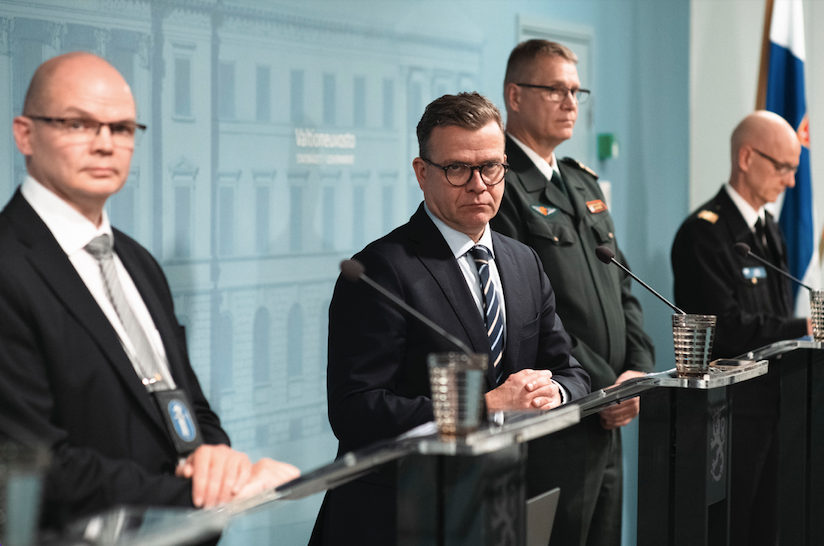
Investigators from Finland say they have evidence of a Chinese container ship damaging the Baltic Sea gas pipeline earlier this month.
The Balticconnector pipeline transports natural gas from Finland to Estonia and had been shut down after initial warnings of a possible puncture.
The investigation began on 8 October when the Finland police informed of a rupture to the subsea Balticconnector pipeline as well as two telecom cables. While the damage was caused by external mechanical force, it was yet to be determined whether it was accidental or an attempt of sabotage.
On Tuesday, Finland’s National Bureau of Investigation (NBI) said they retrieved a lost anchor from the seabed, and the information indicated a Hong Kong-flagged, Chinese-owned cargo vessel, NewNew Polar Bear, being involved. The NBI told reporters in Helsinki that the container ship was missing a front anchor.
Finland’s central criminal police said the anchor weighed 6 tonnes, was missing one of its prongs and had been lifted from the seabed using a navy crane. The anchor had also caused deep drag marks on both sides of the fractured pipeline.
The NBI tried to contact the ship’s captain to no avail and suspected that the movement of the vessel closely coincided with the pipeline damage.
“The next questions are about whether it was intentional, negligence, poor seamanship, and that’s where we get into whether there could be a motive for what’s going on. It’s too early to answer that at this stage,” said Robin Lardot, the NBI chief.
Finland relies on gas for 5% of its energy supplies. The pipeline operators have said it will take at least five months to carry out repairs, and the facility will be in operation in April 2024 at the earliest.
Earlier this month, Offshore Technology reported the Balticconnector has an annual capacity of 2.6 billion cubic metres. At the time of the incident, it was transporting approximately 30 gigawatt-hours of gas per day.
In April 2023, Finland became a member of NATO after abandoning its longstanding policy of non-alignment in the wake of Russia’s invasion of Ukraine. On 11 October, NATO Secretary General Jens Stoltenberg said, “If it is proven to be a deliberate attack on NATO-critical infrastructure, then this will be, of course, serious, but it will also be met by a united and determined response from NATO.”







